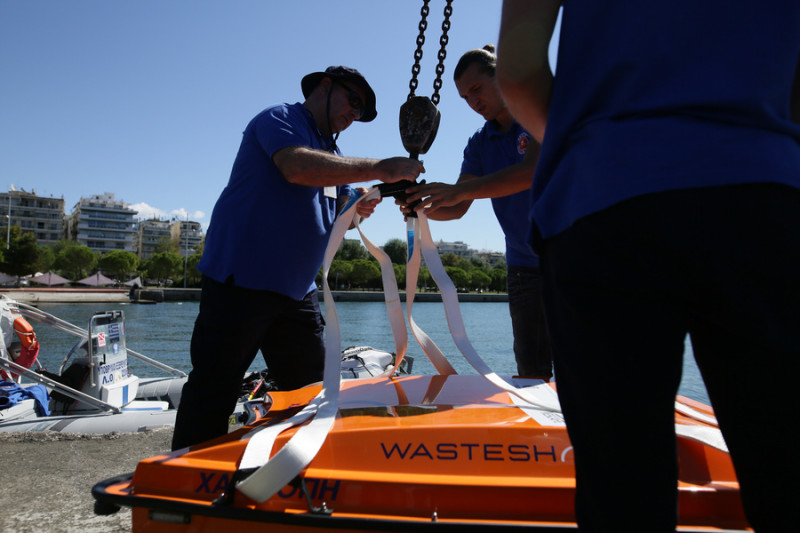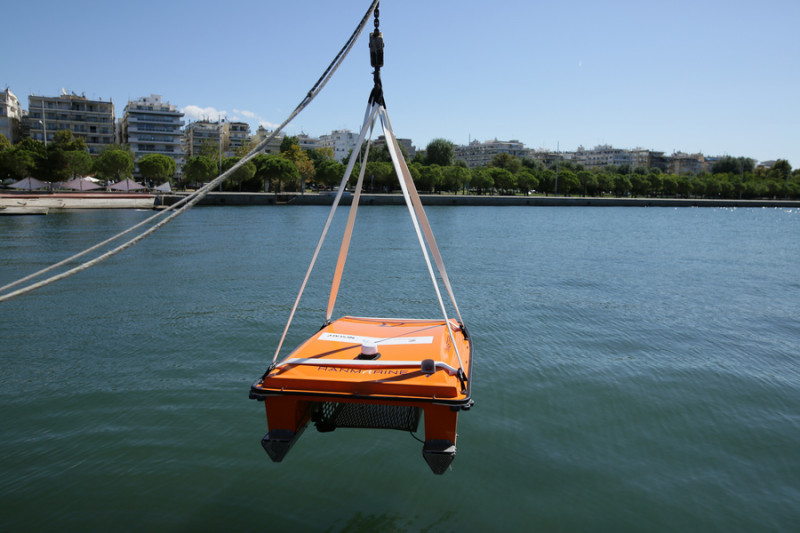The marine drone has the ability to collect up to 160 liters of trash per voyage
“Halkiope” is a marine unmanned floating waste collection vessel. It was bought on behalf of the municipality of Thessaloniki from the Netherlands. It is the first time that it is tested in Greece and more specifically it will sail in the waters of the Thermaikos Gulf.
The marine drone it has the ability to collect up to 160 liters of garbage per trip, which ends up in a special built-in removable bin. It will be handled from the shore at the points where the largest amount of waste is concentrated on the seafront of Thessaloniki, such as the port, the White Tower, the Sailing Club and the Kellarios ‘Ormos.
The first tests in the waters of Thermaikos for “Halkiopi” have already started and will continue until next summer in order to assess the efficiency or any weaknesses so that it can be improved, while it will work in addition to the already existing vessel that cleans the sea area at regular intervals by other agencies.
At noon, another waste collection test took place in the presence of the mayor of Thessaloniki, Konstantinos Zervasof the vice-mayor of the Environment, Erotokritos Theotokatos, but also of private companies that contributed to the operation of the marine drone at the height of the Sailing Club.
“Thermaikos gulf got a shark, a garbage shark. We are very happy that in the effort to keep Thermaikos clean we have another tool in our hands. It is very important that the municipality of Thessaloniki has a high-tech product, a drone that we can use to collect floating pollutants. “The more weapons we have in this effort, the more optimistic I will be that our city will become more attractive and more beautiful,” said Mr. Zervas.
Mr. Theotokatos, for his part, underlined that “the sea is the sensitive part of the environment, it is the mirror of our city and we must protect it”.
“Halkiopi” is expected to operate additionally initially once a week, mainly when there is a severe problem on the beach, while at the same time actions will be taken to raise awareness among citizens to protect the sea from plastic waste.
Also included in the pilot actions is the study of placing traps (nets) in two selected stormwater drains, in order to investigate the possibility of their use, with the aim of reducing the floating materials that end up in the sea in cases of heavy rainfall.
Read the News today and get the latest news.
Follow Skai.gr on Google News and be the first to know all the news.
I am Terrance Carlson, author at News Bulletin 247. I mostly cover technology news and I have been working in this field for a long time. I have a lot of experience and I am highly knowledgeable in this area. I am a very reliable source of information and I always make sure to provide accurate news to my readers.












